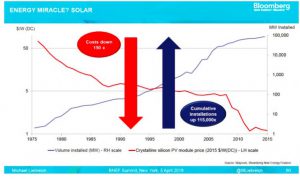
In drafting the United Nations Declaration and Programme of Action for a Culture of Peace, we included the following:
“It is increasingly recognized that in the long term, everyone gains from the implementation of sustainable human development for all. The poverty and exclusion of some increases the vulnerability of all. This represents a major change in the concept of economic growth which, in the past, could be considered as benefitting from military supremacy and structural violence and achieved at the expense of the vanquished and the weak. . . . Special consideration should be given to the reduction of sharp economic inequalities among nations and peoples so as to avoid potential sources of violent conflict.”
It turns out that tax havens are a major method of structural violence achieved at the expense of the poor countries and leading to more and more inequality between the rich (exploiting) North and the poor (exploited) South. The key data are kept secret, but have been unmasked recently by a team of academics at the US-based Global Financial Integrity (GFI) and the Centre for Applied Research at the Norwegian School of Economics and published by the Guardian.
“Multinational companies also steal money from developing countries through “same-invoice faking”, shifting profits illegally between their own subsidiaries by mutually faking trade invoice prices on both sides. For example, a subsidiary in Nigeria might dodge local taxes by shifting money to a related subsidiary in the British Virgin Islands, where the tax rate is effectively zero and where stolen funds can’t be traced. GFI doesn’t include same-invoice faking in its headline figures because it is very difficult to detect, but they estimate that it amounts to another $700bn per year. And these figures only cover theft through trade in goods. If we add theft through trade in services to the mix, it brings total net resource outflows to about $3tn per year. That’s 24 times more than the aid budget. In other words, for every $1 of aid that developing countries receive, they lose $24 in net outflows. These outflows strip developing countries of an important source of revenue and finance for development. The GFI report finds that increasingly large net outflows have caused economic growth rates in developing countries to decline, and are directly responsible for falling living standards.”
Hence, the answer would seem to be, “Yes, opposition to tax havens and corruption is a key part of the culture of peace!”
See the following CPNN articles on this subject:
‘Historic Win’: UN Members to Start Talks on ‘Inclusive and Effective’ Global Tax Standards
The “Fihavanana” of Madagascar: corruption or culture of peace?
Global Alliance for Tax Justice: #EndTaxHavens campaign update: (6 April)